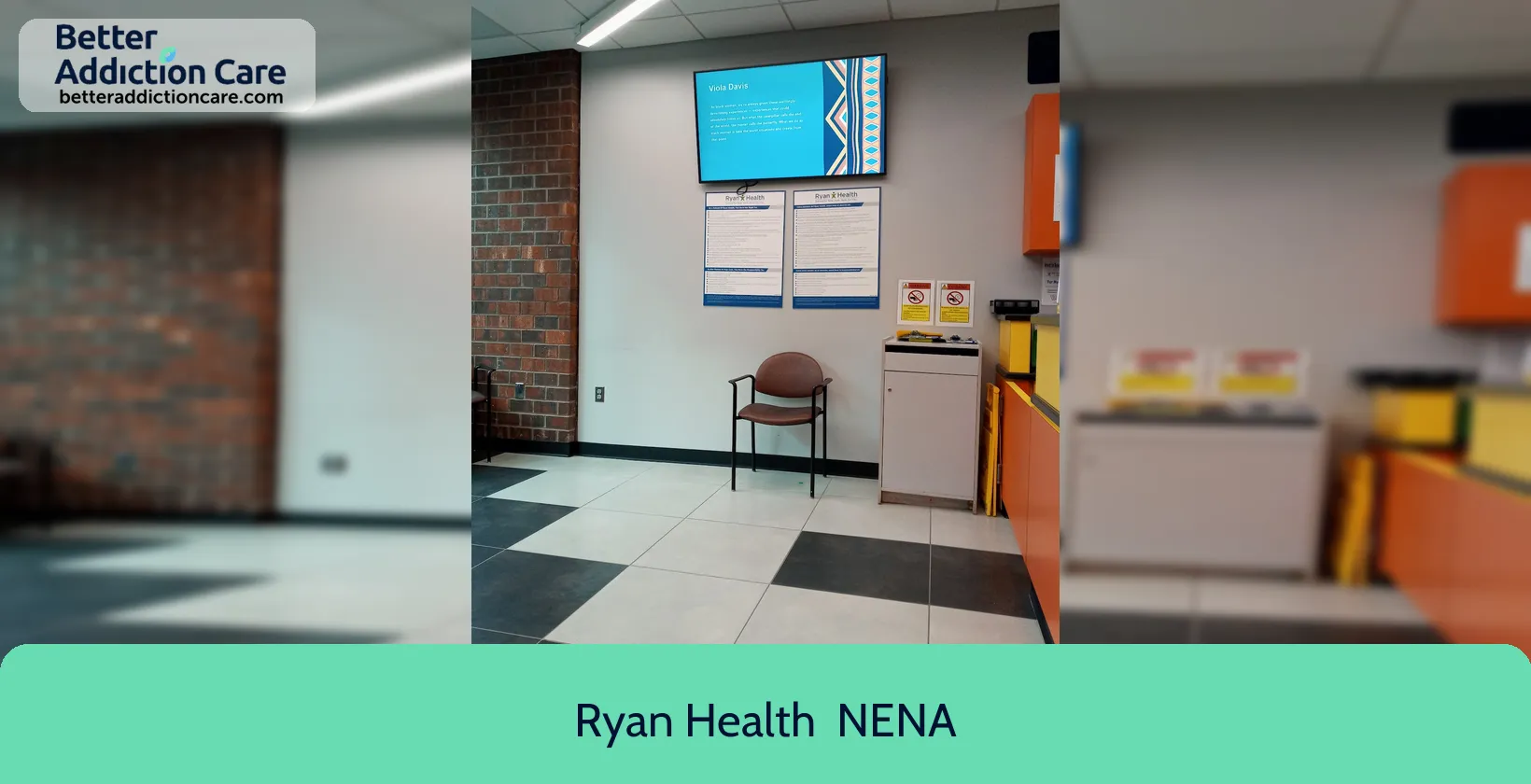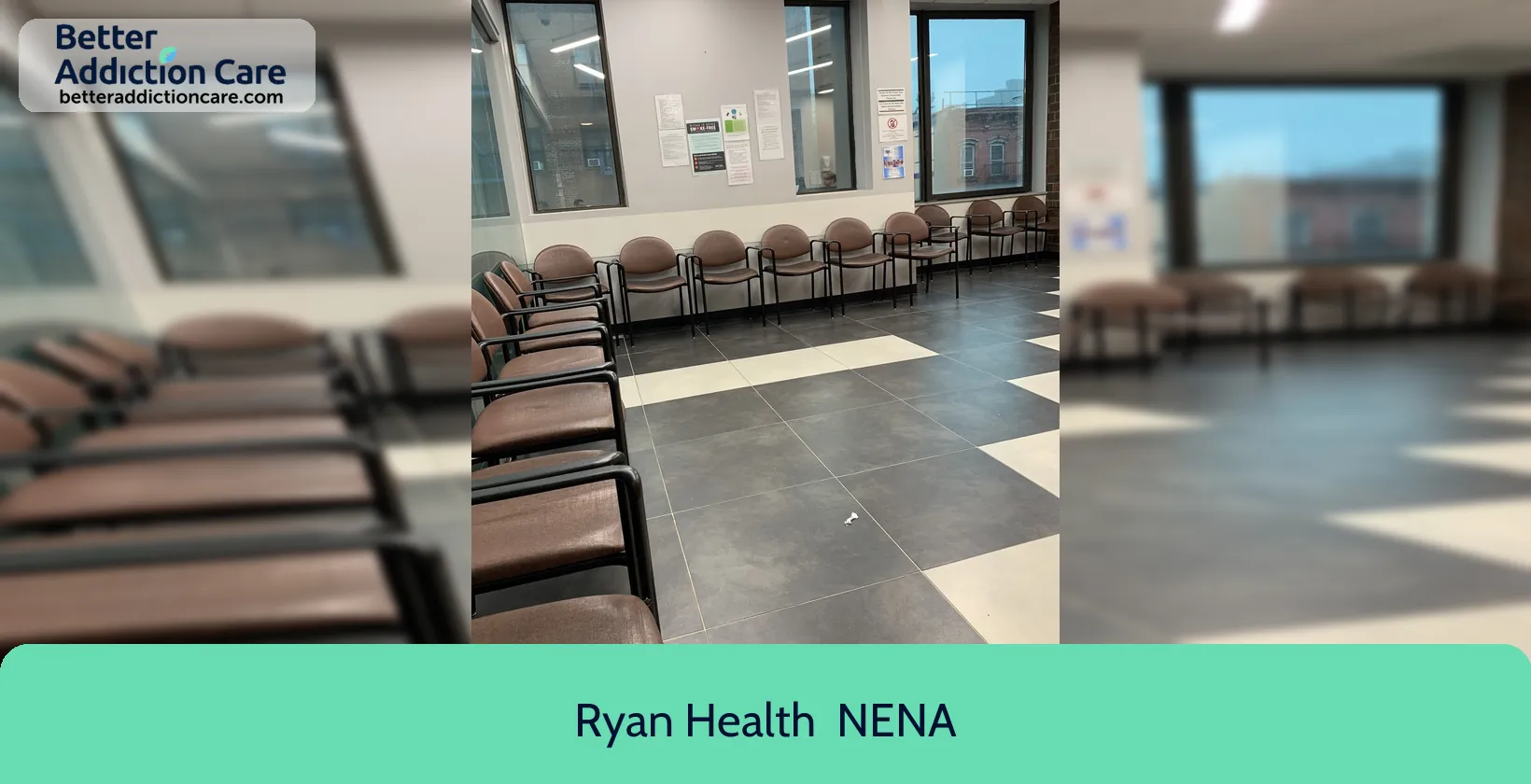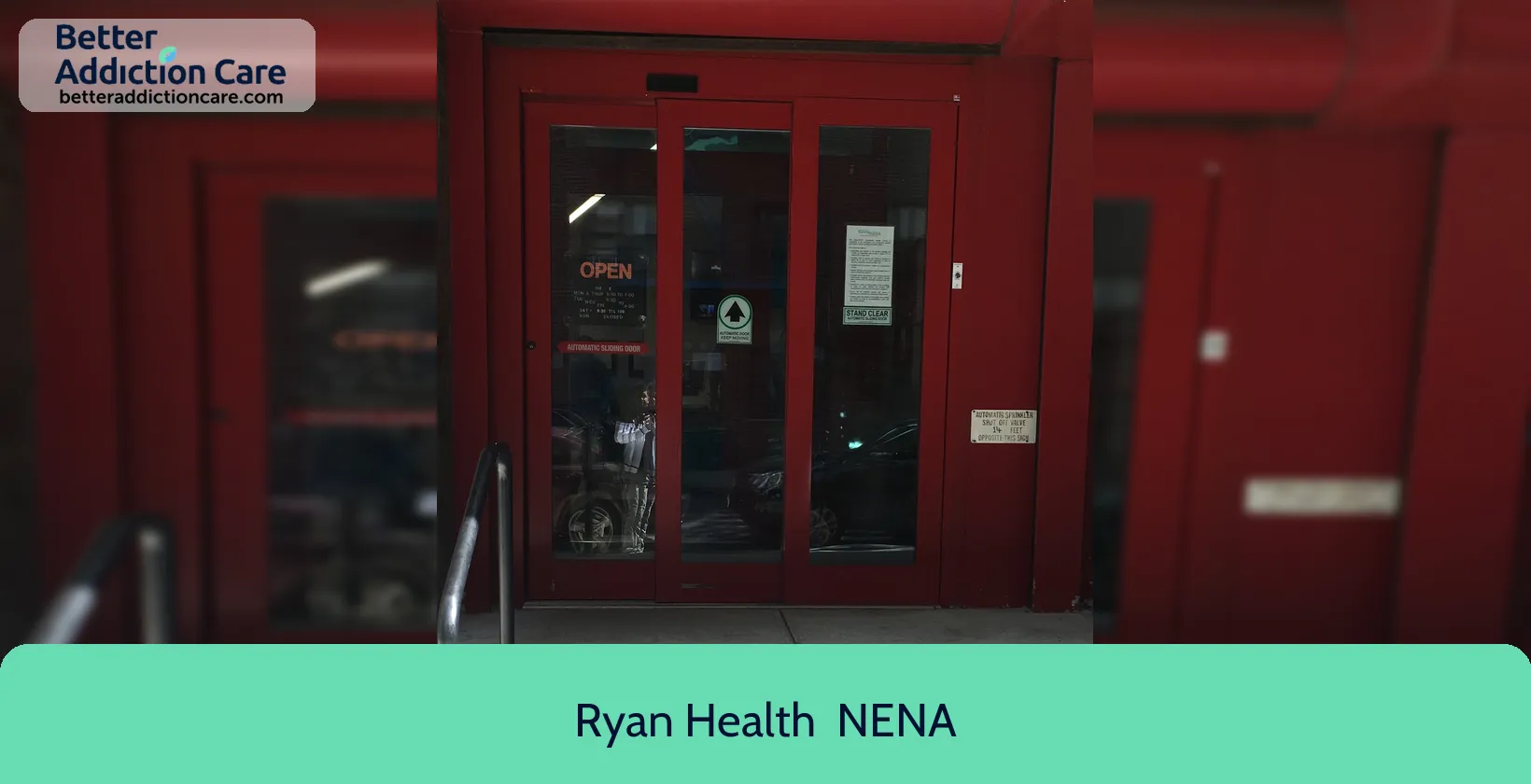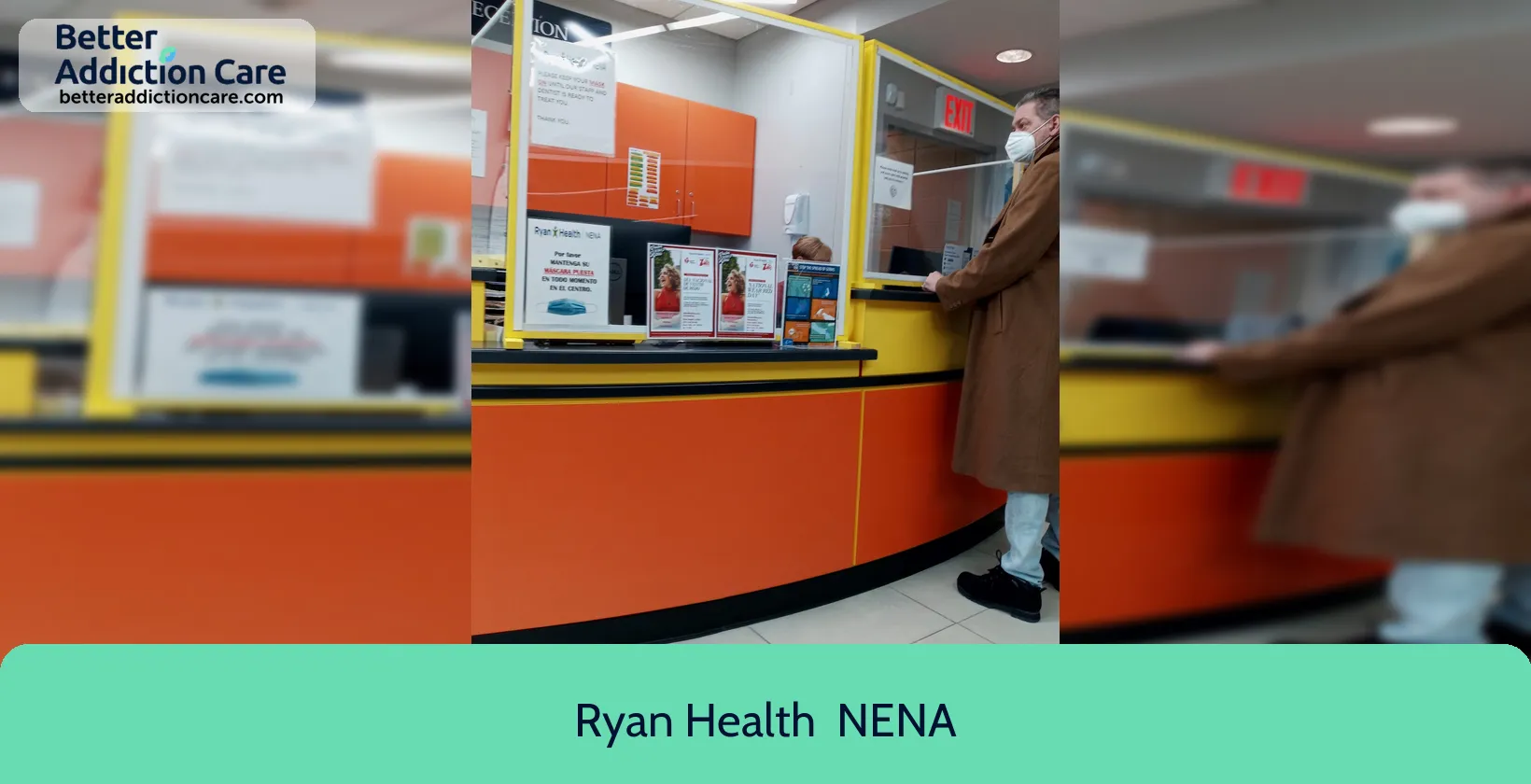Ryan Health - NENA
Overview
Ryan Health - NENA is a mental health treatment center for people seeking treatment near New York County. As part of their treatment modalities for recovery, Ryan Health - NENA provides group counseling, cognitive behavioral therapy, and dialectical behavior therapy during treatment. Ryan Health - NENA is located in New York City, New York, accepting cash or self-payment for treatment.
Ryan Health - NENA at a Glance
Payment Options
- Cash or self-payment
- Medicaid
- Medicare
- Private health insurance
- Other State funds
Assessments
- Screening for tobacco use
- Comprehensive mental health assessment
- Comprehensive substance use assessment
Age Groups
- Children/adolescents
- Young adults
- Adults
- Seniors
Ancillary Services
- Chronic disease/illness management
- Family psychoeducation
- Illness management and recovery
- Integrated primary care services
- Suicide prevention services
Highlights About Ryan Health - NENA
6.68/10
With an overall rating of 6.68/10, this facility has following balanced range of services. Alcohol Rehabilitation: 8.00/10, Drug Rehab and Detox: 6.00/10, Insurance and Payments: 6.00/10, Treatment Options: 6.73/10.-
Alcohol Rehabilitation 8.00
-
Treatment Options 6.73
-
Drug Rehab and Detox 6.00
-
Insurance and Payments 6.00
Accreditations
Federally Qualified Health Center:
Federally Qualified Health Center (FQHC) accreditation is a process of evaluation and recognition by the federal government for community health centers that provide comprehensive and accessible healthcare services to underserved populations. FQHC accreditation is essential for centers to receive federal funding and to ensure that they meet standards for quality, patient-centered care.
Treatment At Ryan Health - NENA
Treatment Conditions
- Mental health treatment
- Substance use treatment
- Co-occurring Disorders
Care Levels
- Outpatient
Treatment Modalities
- Group counseling
- Cognitive behavioral therapy
- Dialectical behavior therapy
- Integrated Mental and Substance Use Disorder treatment
- Telemedicine/telehealth therapy
Ancillary Services
Languages
- Spanish
Additional Services
- Pharmacotherapies administered during treatment
- Metabolic syndrome monitoring
Get Help Now
Common Questions About Ryan Health - NENA
Contact Information
Other Facilities in New York City

6.62

6.50

6.56

6.53

7.57

7.05

7.11

7.37
DISCLAIMER: The facility name, logo and brand are the property and registered trademarks of Joan and Sanford I. Weill Med College, and are being used for identification and informational purposes only. Use of these names, logos and brands shall not imply endorsement. BetterAddictionCare.com is not affiliated with or sponsored by Joan and Sanford I. Weill Med College.




